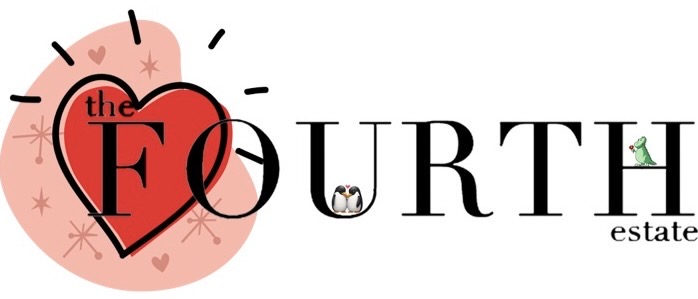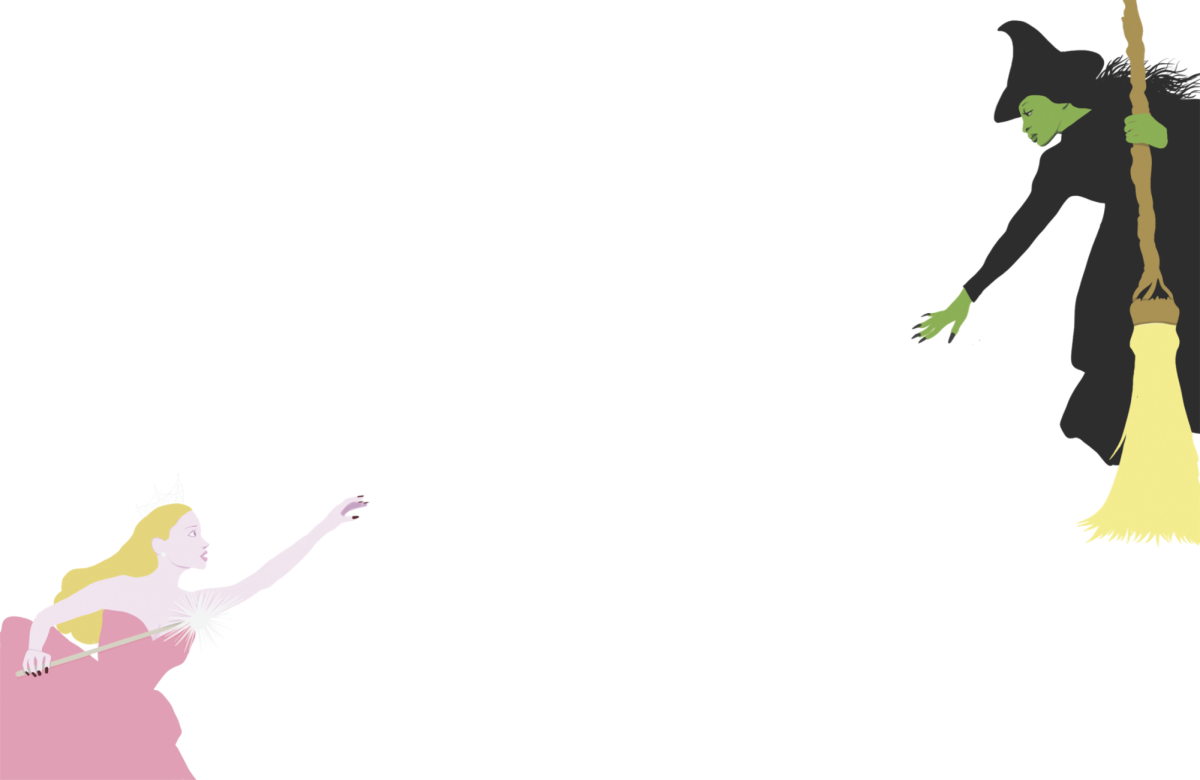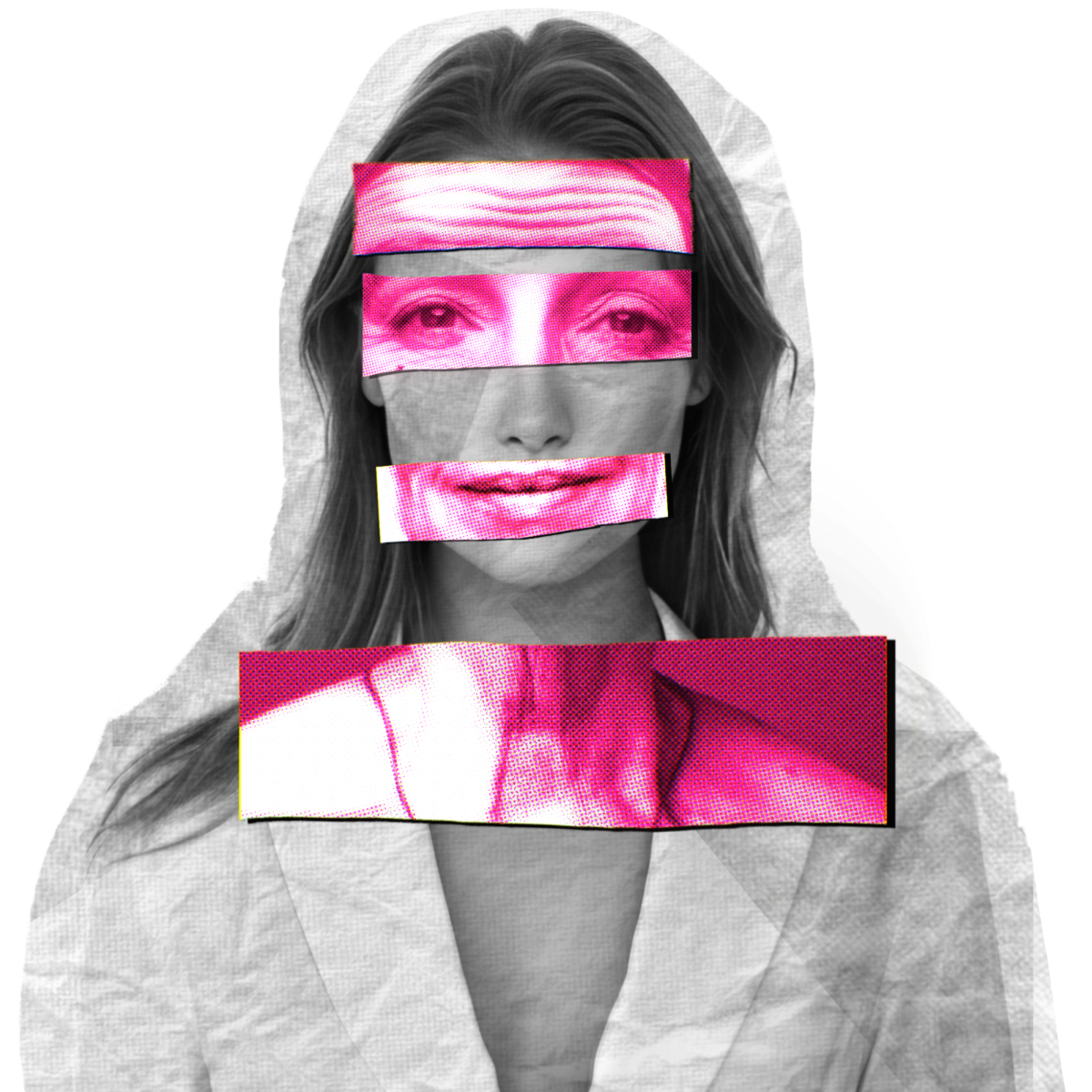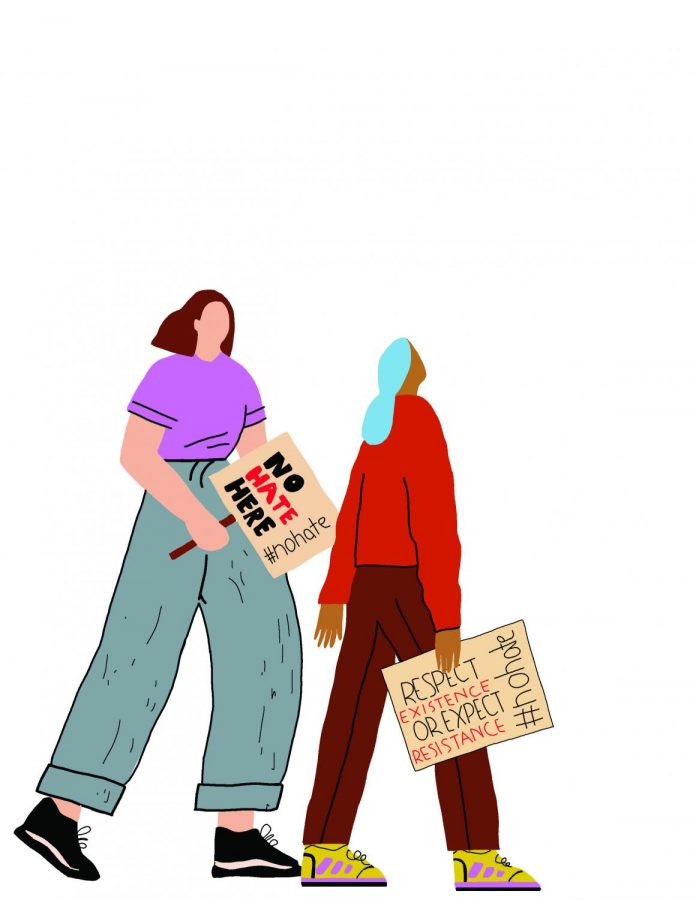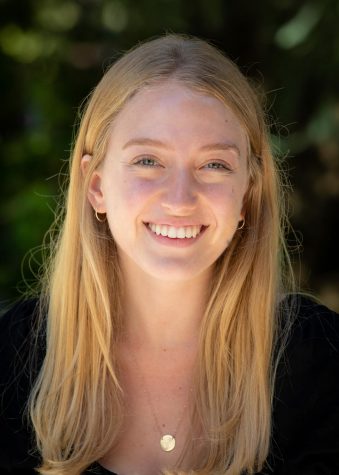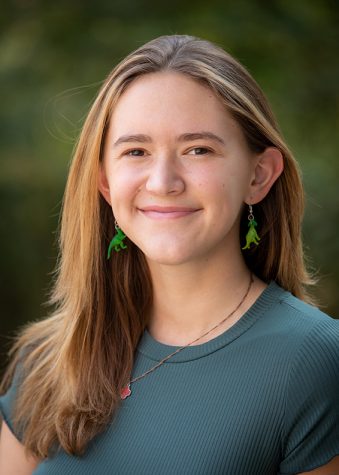The Fight Against Free Speech?
Students are at the center of the debate over protecting free speech and the First Amendment versus promoting liberal beliefs. Is it constitutional to ban people from speaking because their views are contentious or discriminatory?
February 26, 2020
It’s been happening more and more on college campuses recently.
Independent groups request colleges to bring a speaker on campus to talk to the student body, and often-times those speakers’ views do not correlate with the views of the majority of the students.
Diverse speakers on campus are not necessarily the issue — most colleges and students will agree that diverse perspectives are a crucial aspect of any intellectually stimulating and fair collegiate experience.
However, introducing diverse perspectives sparks debates on often liberal-leaning college campuses, — specifically when these speakers target certain races, religions, or people on the LGBTQ+ spectrum. Controversial speakers such as like Gavvin McInnes, a transphobic author who spoke at NYU, often voice views that are extremely right-leaning, racist, or even homophobic, and college students can’t help but fight back.
There is a clear question arising when students protest speakers — is it constitutional to ban people from speaking because their views are contentious or discriminatory?
The University of California, Berkeley is at the center of this controversial debate — their students forcing away speakers like Milo Yiannopoulos, a British far-right activist and writer, and Ben Shapiro, a political commentator with conservative leanings. When its administration acted against bringing similarly provocative speakers to campus, Berkely was thrust into the center of this rapidly-spreading debate.
Although one could argue that Berkely’s efforts to avoid hosting certain speakers are extreme, it stems from student-led protest which liberal activists have a right to. As a result, independent student groups have continued to face political strife with both university administrators and other students when they elect to bring these specific speakers to speak to the student body.
When a speaker has views that are potentially harmful to groups that can be found within the student body, large groups of students from various backgrounds often feel that their college or university’s administration is directly allowing them to feel targeted.
Incidents like these have also been seen at private, elite institutions as well. At Brown University, an Ivy League university in Providence, Rhode Island, controversial and somewhat targeting speakers have also been elected to visit the university by conservative political student groups. Unlike the University of California, Berkeley, however, the Brown University administration strongly refrained from censoring free speech on the college’s campus.
This demonstration of free speech on college campuses when Charlie Kirk, leader of conservative student organization Turning Point USA (TPUSA), was elected by a conservative political group to come speak to students at Brown. TPSUSA, which views universities and colleges in the United States as institutions of liberal infiltration.
Kirk, along with TPUSA, are responsible for marginalizing people of color and members of the LGBTQ+ community. As a result, many of the students at Brown University felt targeted by Kirk’s visit to campus and some viewed the Brown administration’s bringing of this speaker as a reflection of the a lack of sensitivity on behalf of the school’s administration.
“Basically, I think it’s a very complex and nuanced issue that can really depend on what the specific speaker has said in the past or plans to say on their visit,” said Rose Houglet ‘18, a sophomore at Brown.
As a current Political Science major, Houglet recognizes that while Brown may be a dominantly liberal and progressive campus, open discussion is still relevant and important.
She hopes people understand that students’ views are widely spread-out across the political spectrum. “At Brown, we have a whole student group titled “No Labels,” which is dedicated to political discussion outside of partisan lines and which hosted a very interesting and well-attended debate between the Brown Republicans and the Brown Democrats.”
On the opposing side of the argument, many student groups argue that the university’s restrictions on the invitation of speakers is not a protection of students’ safety, but rather a restriction on free speech –– a central element of American democracy.
Many advocates for the classification of events like these as free speech on college campuses often also call attention to the fact that all students are fair and equally able to protest.
At Berkeley and Brown, student-led protest in efforts to avoid hosting speakers have been the dominant force behind political conversation on college campuses.
This debate brings up an important question about the fine line between free speech and hate speech.
What exactly does “free speech” mean on college campuses? Where is the line between free speech and intentional marginalization of student groups on campus?
And perhaps most controversially, what is the role of the university’s administration in this process?
